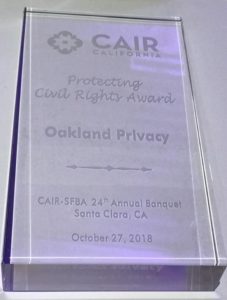Shotspotter, or SSTI Inc, the Newark, CA-based manufacturer of gunshot detention sensors that are in wide use in police departments around the country and many in the Bay Area, is a defendant in a civil rights lawsuit. The case alleges that Shotspotter conspired with the Rochester Police Department in the attempted framing of a police shooting victim with 4 felonies by altering their forensic report twice and then misplacing the original audio file.

Silvon Simmons was shot three times in April of 2016, charged with attempted murder, assault, and two counts of criminal weapon possession, incarcerated from April of 2016 to October of 2017 and finally acquitted of all charges. He filed a lawsuit against the Rochester PD and Shotspotter in August of 2018 for illegal search and seizure, false arrest, false imprisonment, the use of excessive force, falsification of evidence, malicious prosecution, and denial of a fair trial.
The civil rights complaint against Shotspotter can be read here.
Oakland Privacy member Tracy Rosenberg wrote about the case. Find Us One More Shot.




 Washington – Today, 34 civil rights, consumer, and privacy organizations join in releasing
Washington – Today, 34 civil rights, consumer, and privacy organizations join in releasing 
